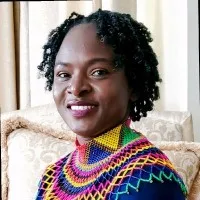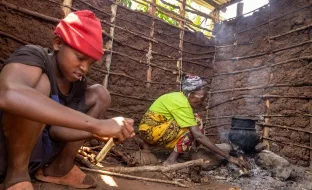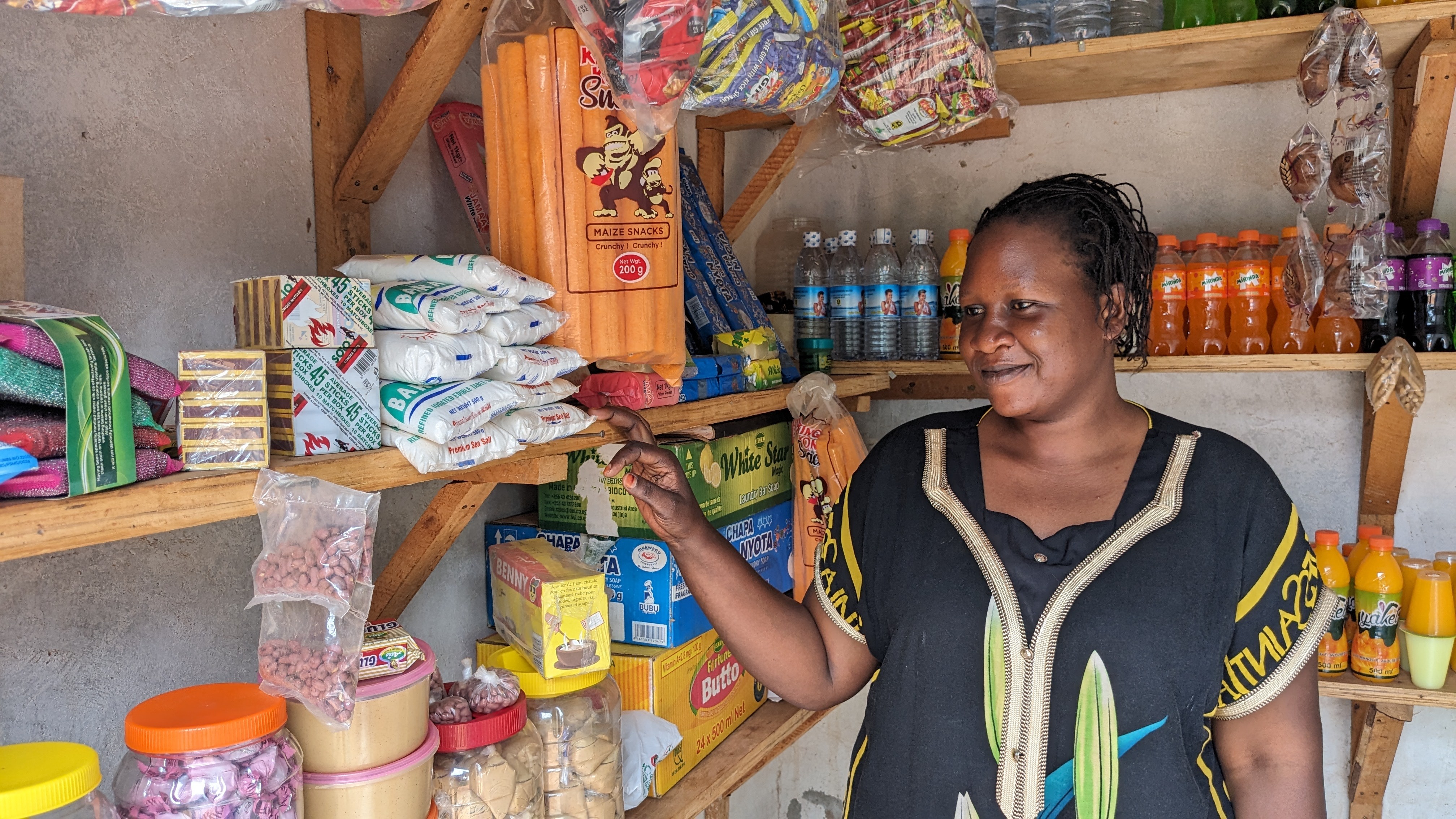
Caroline Teti is GiveDirectly’s Director of Safeguarding and Recipient Advocacy.
Listen to Caroline narrate her letter:
As a woman born in the rural villages of western Kenya, I watched mothers toiling to make life livable for their children, forgoing the basics to give us access to the little they could. It was not uncommon for women to go hungry or lack decent clothing to give their children a chance to eat and dress.
Charities that showed up would often reinforce this desperation rather than relieve it. I saw mothers with babies strapped on their backs scrambling for food handouts when a charity arrived unannounced and disorganized, with a limited supply. Others endured doing hard labor when a program promised a paltry payment for those strong enough to work.
After university, I worked on water and sanitation projects, but it wasn’t until 2016 when I took a job implementing GiveDirectly’s basic income study that I understood the unique power of direct cash.
Money sent directly to women living in poverty is a promise of courage, control, and choice. Evidence shows women can use cash to improve their health and that of their children, increase savings, start businesses, and attend school. With cash, domestic violence decreases and joint decision-making between wives and husbands increases.
That said, unconditional cash is not a silver bullet. Some studies find the positive impacts are more pronounced for men than for women (e.g.), and in some families, an influx of cash may exacerbate, not reduce, conflict. This is why GiveDirectly continues conducting rigorous research – the more we know about how cash helps, the better we can design our programs. Our goal is to be a valuable partner in the decisions recipients make about their lives.
Recently, I visited Mozambique to see how your donations deliver hope to women living in these remote rural communities.
Effie explained her decision to send her daughters away for school with pride: they will not get married off at 14 years, bear children when young, and experience gender-based violence as other women in their village have.
Rita could not hide her joy! Receiving $40 a month allowed her to resume her HIV antiretroviral treatment. She’d defaulted because she lacked bus fare for the hospital 12 miles away. Now she has hope in living longer and caring for herself and her family.
This International Women’s Day, I feel proud to have given dignity and choice to women living in poverty. I hope you do as well.
You can hear more from Caroline Teti below:

